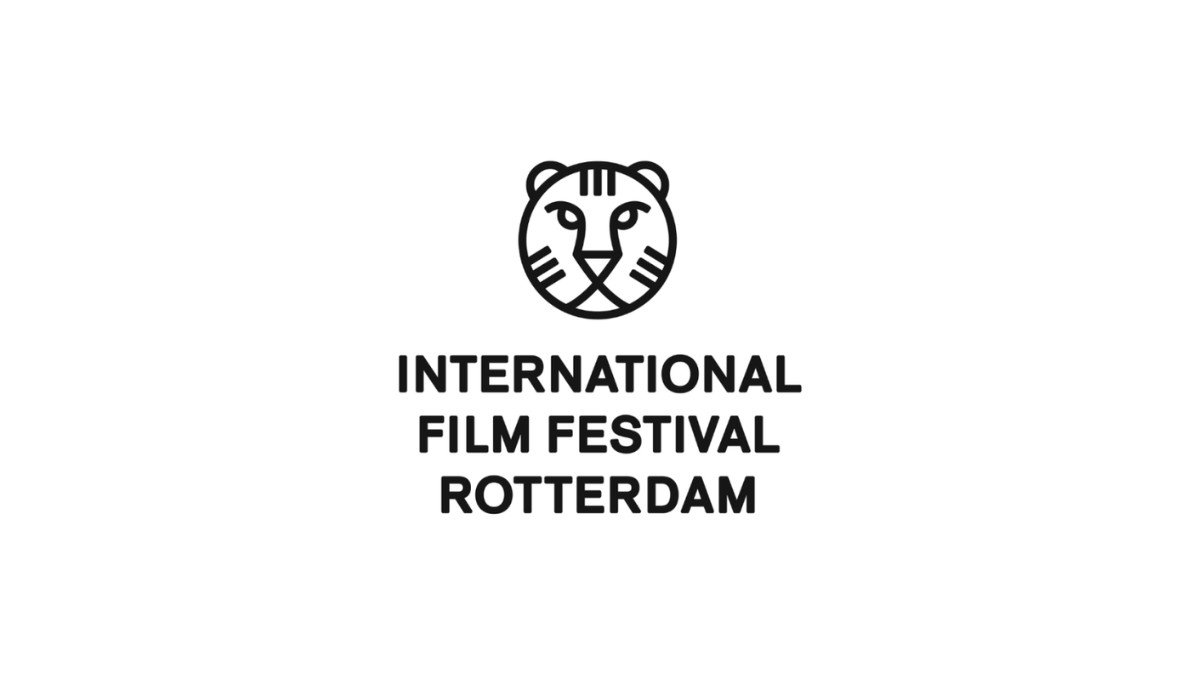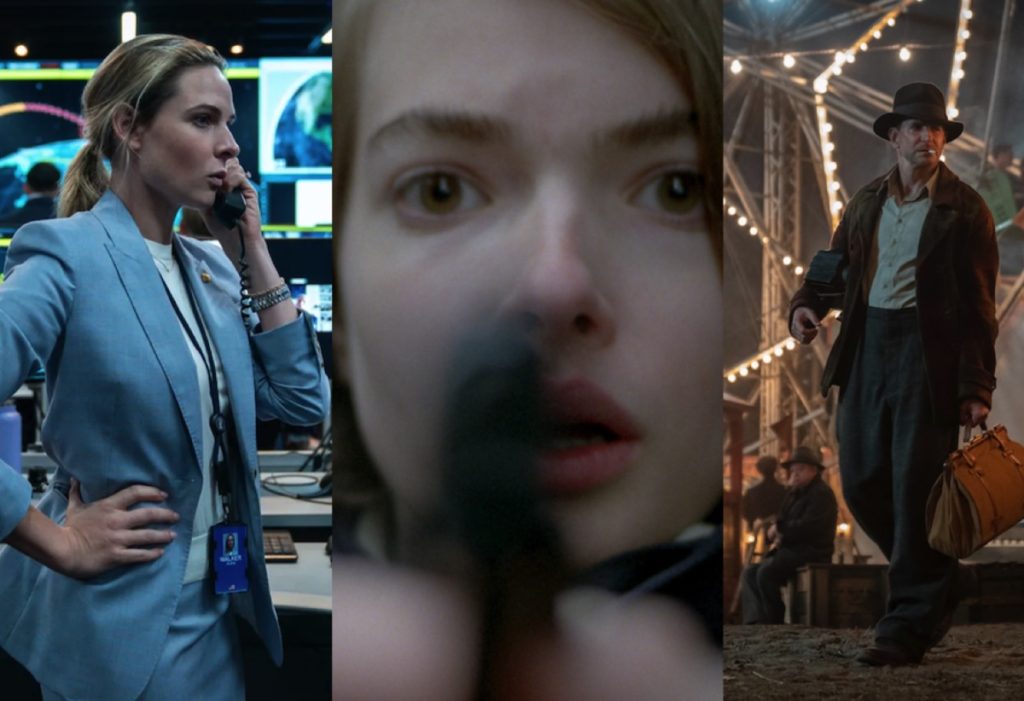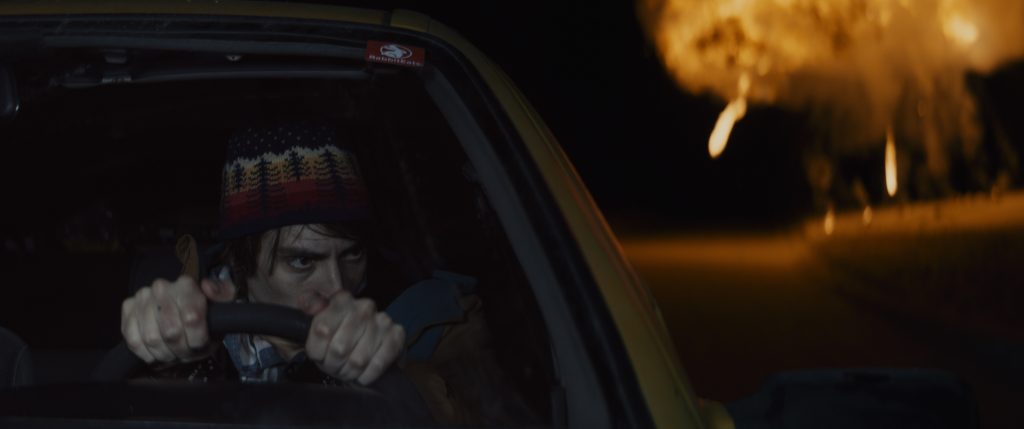Admittedly, IFFR is the largest festival I’ve been to in quite nearly four years — Sundance 2020 was my last pre-pandemic hurrah, and since then I’ve just been minding my own business (festival-wise). Most recently I’ve been frequenting smaller festivals with narrower niches —Asian cinema, animation, documentary, short films, you name it — which are often lovingly intimate and create less of a panic when confronted with a festival program like IFFR’s. It’s safe to say that the fest was thus a bit of a culture shock for me, but soon my schedule was filled with curiosities and unseen historical works that cinemagoers can so often not find anywhere else: a perk of IFFR’s resources.
As always, the festival gave its fair share of experimental offerings and works that challenge the conventional contemporary viewing experience. Within the Tiger Competition, Moses, by Finnish multimedia artists Jenni and Lauri Luhta, ended up being a sort of gender-bending lecture-slash-performance work involving the monologuing of Freud’s book, Moses and Monotheism. It was a peculiar experience that didn’t quite live up to my expectations around its art historical content. On the flip side, Yves Netzhammer’s Reise der Schatten surprised me with its tenderness, where its animation style that looks like something straight of a crude ‘90s 3D animation rendering actually assists in creating a tender meditation on grief and loss.
In Praia Formosa, Julia De Simone very effectively plays with a sense of linear time while blending documentary and fiction to prod at Portugal’s history of colonialism and slavery in Brazil — and its remnants today. In the vein of the blending of documentary and fiction, Farshad Hashemi’s debut film (of any kind) Me, Maryam, the Children and 26 Others is a standout, quietly examining the status and positionality of women in Iranian society through the story of a film shoot at the home of a seemingly lonely, isolated woman. This was the most conventional of the few I saw in the Tiger Competition, but its meta-combination of “documentary” (the film shoot) and “fiction” (the actual short film being shot) to speculate on the nature of human relationships could conceivably be read in a multitude of more experimental ways.
Coming straight from a festival in Lithuania, I was told that Twittering Soul was the only Lithuanian film at IFFR, so naturally, I had to check it out. Deimantas Narkevičius’ meandering piece ties together folktales, tradition, and countryside historical fiction with magical realism — but the kicker? It’s a film made specifically for 3D viewing and is the first Lithuanian stereoscopic feature film. The anachronistic juxtaposition of content and form was fascinating (and something I have to think about further), but my lack of context really plagued the viewing experience, despite the work showcasing visuals of luscious green fields and a calming sort of mise-en-scène.
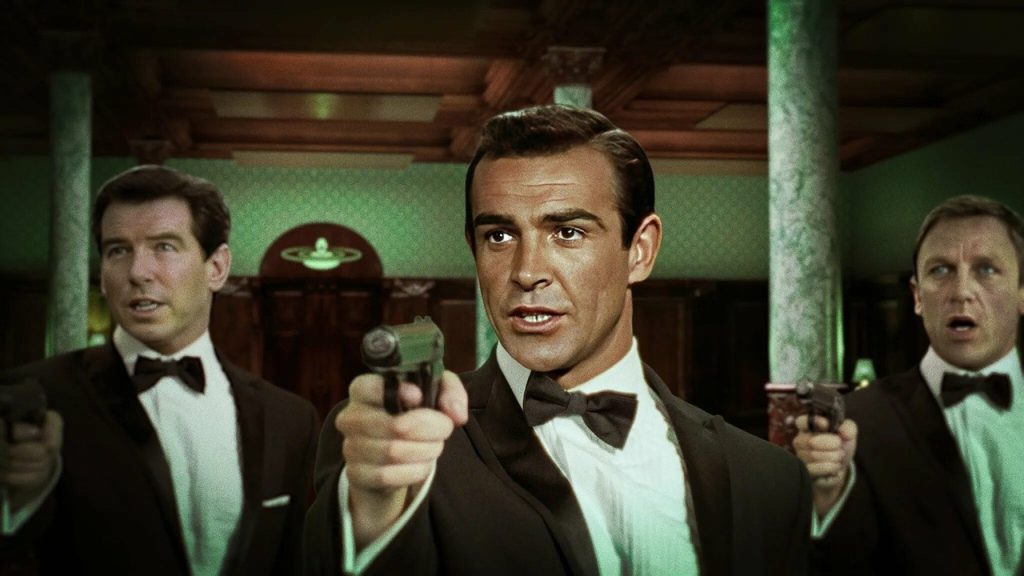
Rachel MacLean’s DUCK is a deepfake frenzy in which Sean Connery’s James Bond uncovers a conspiracy around the world’s most powerful people being ducks, including Marilyn Monroe (both played by MacLean herself). This leads to a bloodbath shootout accompanied by other Bonds (again, all played by an uncanny valley deepfaked MacLean). It’s just delightfully perverse, like many of her other works, including her six-minute interactive VR piece, I’m Terribly Sorry. Screening in the Immersive Media portion of IFFR, it’s a first-person shooter on the dystopian streets of London as Brits with smartphones for heads swarm you, asking for favors — and you’re equipped with a phone whose blinding camera flash acts as a firearm.
The most profoundly affecting VR work was Small Acts of Violence by multidisciplinary artist Aay Liparoto, a 25-minute piece centered around stories by female, non-binary, and transmasculine perpetrators of intimate partner violence. Viewers can fluidly move between three “scenes” depicting loving families, which are accompanied by voiceovers speaking about perpetrating different forms of violence and hurt. It’s a difficult topic to confront (and one might ask if this is platforming perpetrators of domestic abuse), but then it becomes more nuanced, expanding to these eponymous small acts that everybody can likely relate to, whether in the position of perpetrator or victim. “You were in there a long time!” said the moderator of the work’s exhibition (viewers could opt to exit the experience at any time). I’m spoiled in that I’ve had the luxury of experiencing likely more VR than the average festivalgoer, given my post-secondary education in the heart of Silicon Valley, but the fact that time flew by in Liparoto’s work to me was a measure of its success and its emotional impact.
Then you’re left with some puzzling works like Lev Kalman and Whitney Horn’s truly bizarre Dream Team, which, on paper, is the sort of wacky I’m a sucker for: a surreal satire of ‘90s basic cable police procedurals. I couldn’t latch on to many of the gags, but maybe I’m not familiar with this sort of late-night soapy TV. The film’s opening titles play over and over to simulate television episodes (each with their own cringeworthy titles, like “Asses to Ashes” and “Doppelgangbang”), and I still can’t tell whether it’s the reason I thought it was well-paced. However, the humor eventually gets repetitive before the film simply just ended, rather unceremoniously. At times it reminded me of the TBS sitcom Angie Tribeca (a show I love) but less exuberant — the oneiric quality and multiple overlays were the highlight.
None of the short films really blew me away, although the advantage to IFFR shorts is that they play with form in ways you might never see before. There’s Simon Rieth’s 6000 Mensonges (6000 lies), composed of 6000 AI-generated prenatal images as the filmmaker’s personal response to losing a newborn. Then there’s Cameron Worden’s Digital Devil Saga, which I cannot necessarily recommend to the photosensitive. Essentially an audiovisual overload of digital detritus, Worden picks from the most familiar corners of the Internet to those you maybe never wanted to see and edits them together at light-speed (seriously). Valeria Sarmiento’s La Femme Au Foyer (The Housewife) is a biting short film prelude to Patricio Guzmán The Battle of Chile, Part I — the first in a grand trilogy on the nation-state’s CIA-backed 1973 overthrow of Salvador Allende, an essential historical watch — whose interrogation of the perceived passivity of the housewife in political affairs is both humorous and frightening.
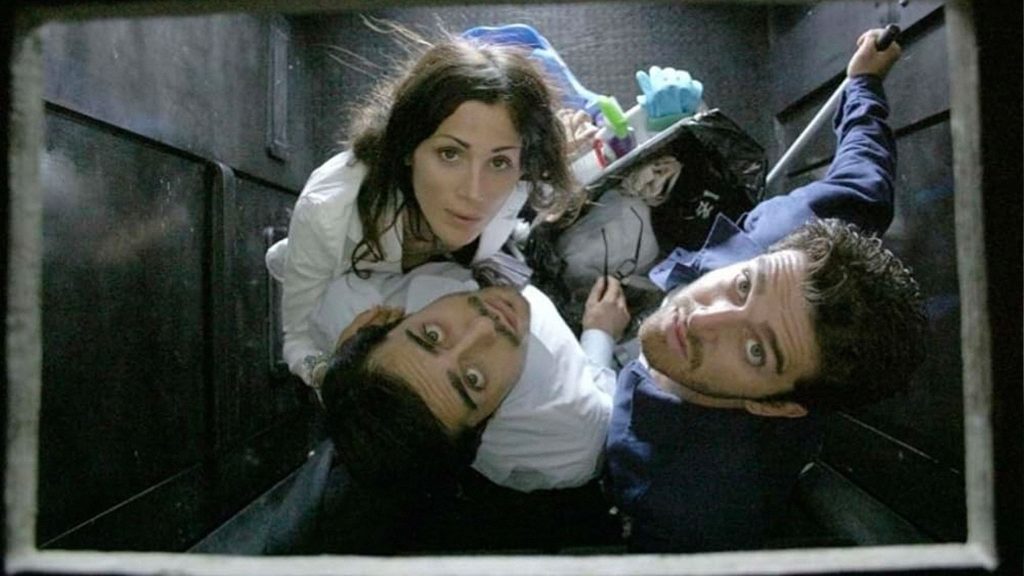
The Italian films gave me the impression that its popular national cinema wants to be as pulpy as possible — but that’s probably not too far from the truth if we look at things like giallo filmmaking. Piano 17 (Floor 17) is a Manetti Bros. film (this year’s edition had a retrospective section devoted to the filmmakers) in the style of Speed and Die Hard but contingent upon a series of compounding flashbacks. It’s ridiculous, but the writing works for the style and it’s not easy to get bored, even when the main characters are stuck in an elevator for the majority of the film. I barely caught a sold-out screening of Daniele Luchetti’s Trust (Confidenza), a psychological thriller centered around a man and his past demons his ex-girlfriend threatens to release as he grows old. We never learn what they are, which is frustrating (but part of the film’s generalizability), and some scenarios border on absurd, but it’s kind of brilliant how much tension the filmmaker is able to build. The number of horny Italian characters (read: everybody cheated on everybody) left me asking: Is this real life or is this just Italy?
Toward the end of the festival I found more of my favorites, including Emilia Gašić’s 78 Days, a fictional found footage film (actually shot in Hi8) on the lives of three sisters in rural Serbia during the 1999 NATO bombings. It could so very plausibly be a documentary, all thanks to a genuinely stunning ensemble performance of a trio of two young women and a girl. Partly inspired by the director discovering her own Hi8 tapes of the bombings and life with her two sisters, it acts as sort of brilliantly resistive, anti-war porn — anti-war, but also the inverse of war porn where mundanity instead takes a front seat in examining conflict. Finally, there’s Fresh Kill, Shu Lea Cheang’s radical 90s ecofeminist, queer, hacktivist, capitalism-bashing, performance art-focused 90s conspiracy thriller — one could append so many more labels that would do the film more injustice than good. It felt like Do the Right Thing, a film whose communities I am not a part of, for an audience like me. Collage-like in nature, it splices together scenes from different environments that all come together by the end to craft a wild critique of contemporary technofeudalism. The only way to understand Fresh Kill is really to experience it.
Naturally, I didn’t manage to see any of the feature film award winners. Nonetheless, some of my top films (like 78 Days and Me, Maryam, the Children and 26 Others) clocked in at the top 20 of the audience favorites, so maybe I really am just a predictable film viewer. Granted, fellow members of the press whispered of a nearly 30 to 40% budget cut for this year’s edition (the veracity of this statement could not be proven) and likely a less rewarding festival than years past. But on the whole, I was satisfied with the diversity of films and a few favorites that emerged.
